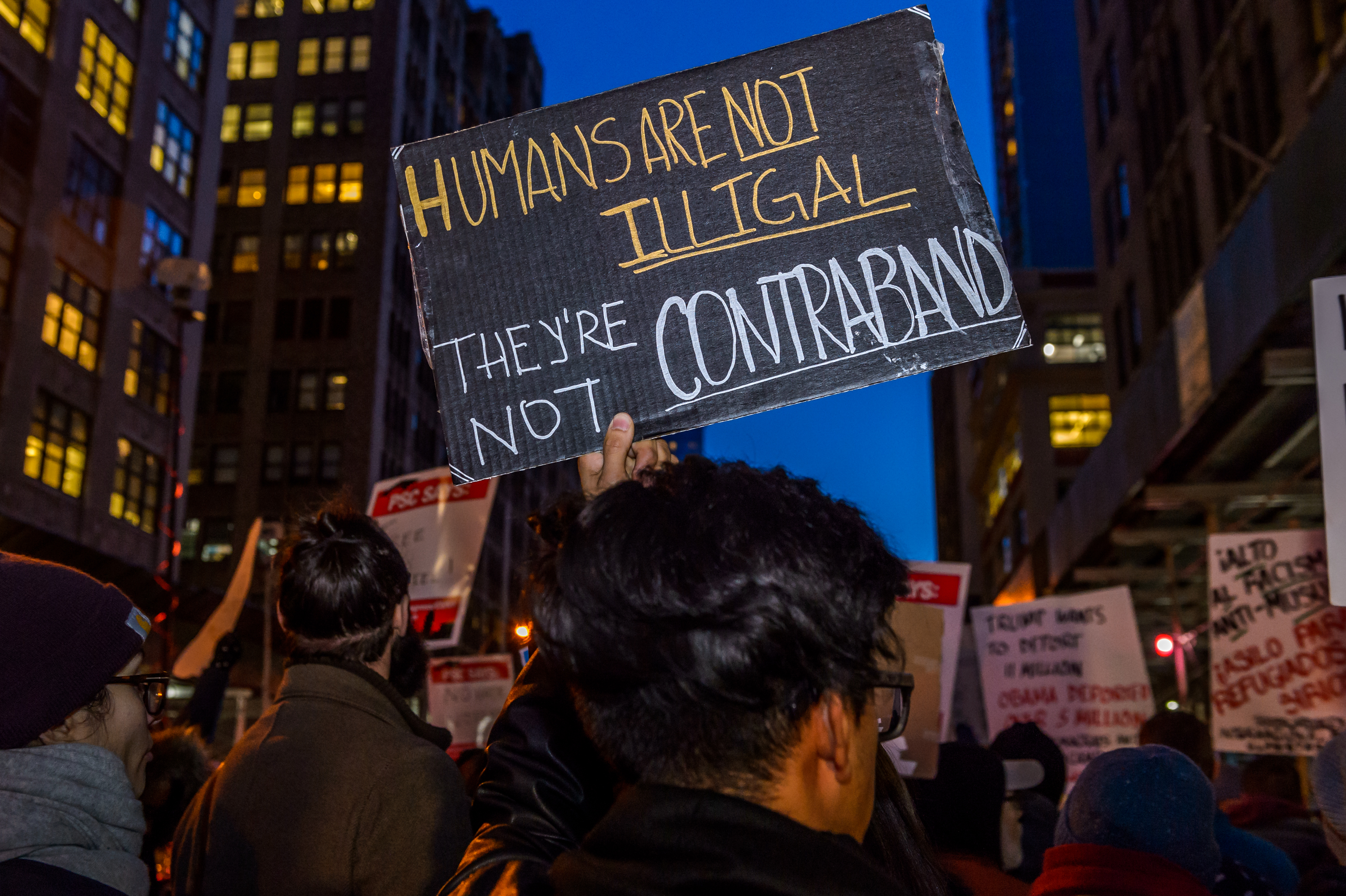
Source: Pacific Press / Getty
The dehumanization of undocumented folks is a platform that the Trump administration has continued to buckle down on since the very moment he came into office. This week, it advanced the campaign with its preferred word choice in reference to this population.
The Department of Justice (DOJ) informed U.S. attorneys to use the term “illegal alien” when referring to an individual who entered the country illegally, according to a copy of an agency-wide email obtained by CNN.
“The word ‘undocumented’ is not based in U.S. code and should not be used to describe someone’s illegal presence in the country,” the email states.
According to the email, an immigrant who is in the U.S. legally or whose status is unknown is to be described by their country of citizenship. U.S. citizens or green card holders are referred to as a “resident” of the state or city where they live, and the guidance says their citizenship status can be referenced if it is part of the factual record of the case.
The DOJ guidance says the goal is to “clear up some confusion and to be consistent in the way we draft our releases.” It describes the particular way regional offices should refer to individuals in news releases. But what the DOJ is actually doing is reaffirming its stance on dehumanizing immigrants and trying to make its word gospel.
According to advocacy group America’s Voice, this dehumanizing rhetoric is meant to strip people of their basic rights and dignity, underscore otherness, and facilitate discriminatory actions. Once we consider someone “alien” or “illegal,” we fail to see them as human. Even Supreme Court Justice Sonia Sotomayor explained that “people paint those individuals as something less than worthy human beings and it changes the conversation.”
So no, DOJ—we refuse to refer to our undocumented family as “illegal aliens.” What is “illegal” and “alien” at its most evil core? Separating families and keeping children in cages. That’s an entirely more important conversation, above anything else.
















